Experts Matter. Find Yours.
Connect for media, speaking, professional opportunities & more.
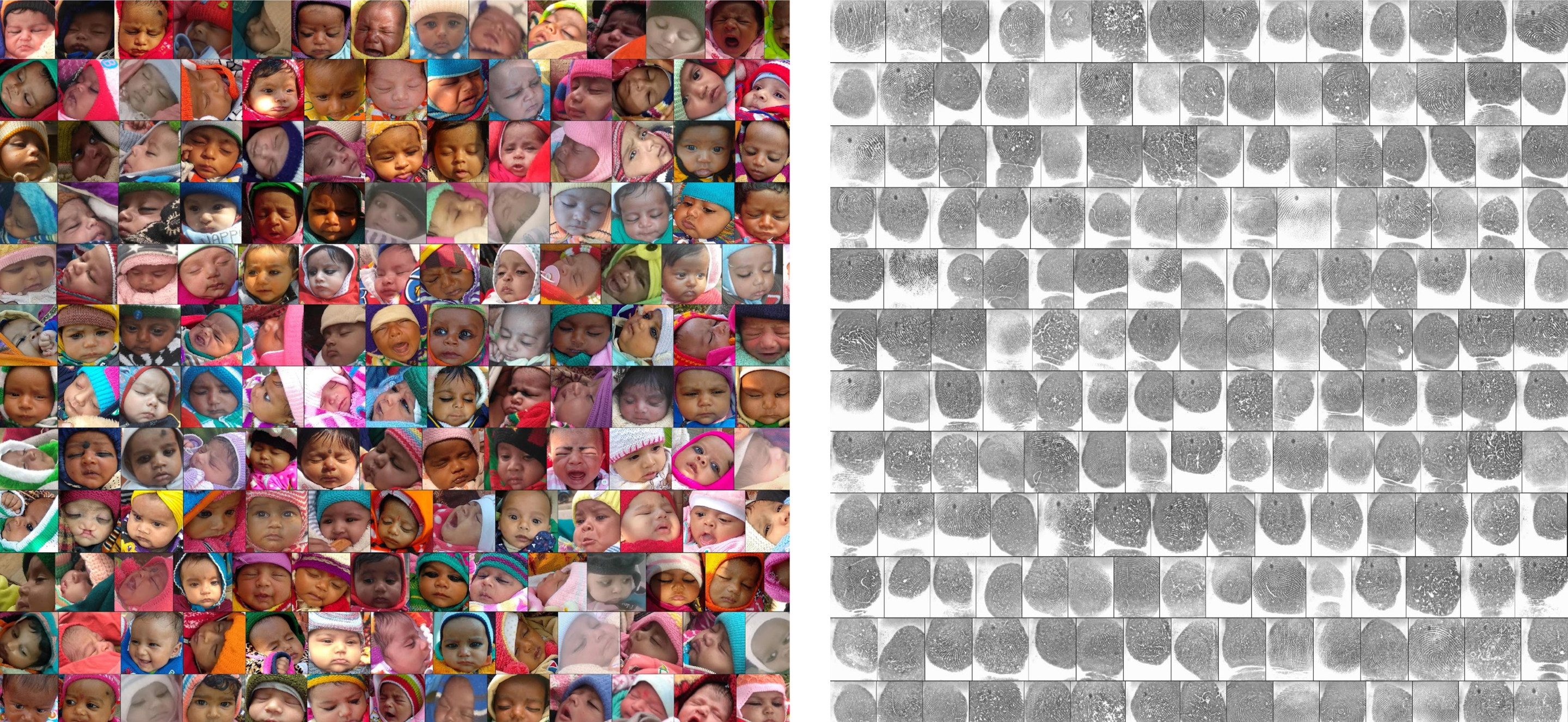
As COVID-19 vaccination efforts ramp up in developing nations, accurate and accessible vaccination records are critical for children who often lack official identification necessary for the delivery of government or medical assistance. Fortunately, the solution to this problem and the broader need for child identification has been researched for years now by Anil Jain, a Michigan State University Distinguished Professor of computer science and engineering. Jain and his team of researchers — Joshua Engelsma, Debayan Deb and Kai Cao — are now advancing the use of groundbreaking fingerprint recognition systems for children as young as a few months old. “The research of Jain and his team is unique in its rigor and in the promise that it embodies,” said Joseph Atick, executive chairman of ID4Africa. “Solving the infant ID problem through fingerprints will have profound consequences to the development agenda as a whole and to civil registration, child protection and health management, in particular. It will give today's invisible children in the developing world a legal identity by tracing them to their origin, enabling them to assert their rights and to be fully included in society.” Starting in 2014, Jain and his team began developing fingerprint recognition that worked well for toddlers,1 year and older. The researchers traveled to Saran Ashram hospital in Dayalbagh, India, where, over a one-year time span, they fingerprinted the same children multiple times to show they could be reliably recognized based only upon their fingerprints. The team's latest breakthrough employs an $80, high-resolution (1900ppi) infant fingerprint reader. It developed along with a high-resolution fingerprint matcher. Prints taken in children as young as two months were still recognizable a year later. It’s a compelling story, and the complete article is attached here. Despite efforts of international health organizations and NGOs (nongovernmental organizations), children are still dying because it’s been believed that it wasn’t possible to use body traits such as fingerprints to identify children. We’ve just demonstrated that it is indeed possible,” Jain said. In many developing countries, identification documents are kept as paper records, but paper is easily lost, destroyed, forged or stolen. Fingerprints are purportedly unique and, once captured in a database, could be accessed by medical professionals to reliably record immunization schedules and other medical information. In additional to accessing medical records, capturing a child’s fingerprint has several additional uses such as civil registries, lifetime identities and improving nutrition. This is an amazing feat and one worth covering. If you are journalist looking to learn more – then let us help. Anil K. Jain is a University Distinguished Professor in the Department of Computer Science & Engineering at Michigan State University and is a renowned expert in biometrics. Jain is available to speak to media about facial recognition technology - simply click on his icon to arrange an interview today.
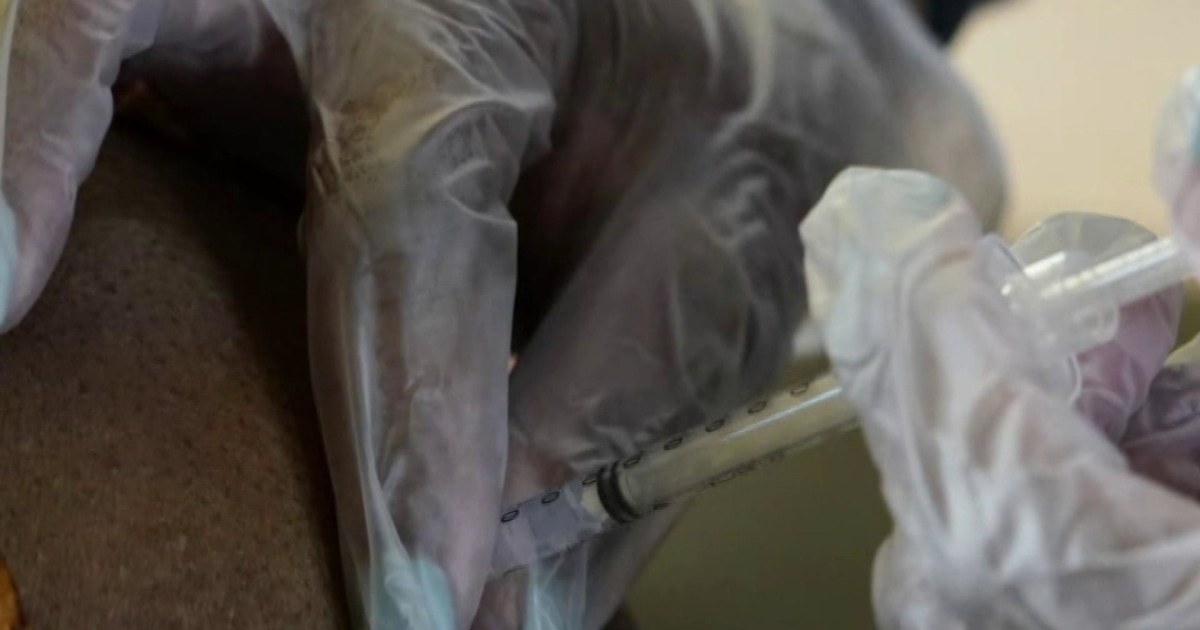
Ask the Expert: Medical distrust in Black communities
Historical racism and modern-day health care disparities have ingrained distrust in Black communities of a medical system now charged with encouraging people to take the COVID-19 vaccine. This is a vitally important topic and one that is capturing national attention with conversations surrounding inequity when it comes to distribution and immunization plans across America. Debra Furr-Holden is associate dean for Public Health Integration at Michigan State University, specializing in gender and racial health disparities and epidemiology, and was recently interviewed by MSNBC about this topic. Debra Furr-Holden is also director of the Flint Center for Health Equity Solutions, funded by the National Institute on Minority Health and Health Disparities. Furr-Holden was appointed by Gov. Gretchen Whitmer to be a member of the Michigan Coronavirus Task Force on Racial Disparities. She answers questions about medical distrust. Why is there medical distrust among Black communities? Medical mistrust in Black communities is rooted in both historical and modern-day wrong doings. I’ve heard many stories in the Black community of loved ones being turned away from the hospital and sent home to die during the COVID-19 pandemic. We read the headlines that confirmed the procedures used to prioritize people for COVID-19 care and hospitalization disparaged Black people. When you compound these modern-day experiences with historical wrong doings like the Tuskegee Experiments and Henrietta Lacks, there is never a chance for the wounds to heal and trust to be built. Also, the medical system is a part of a larger society and system of inequality that places a lower value on Black lives. Can racism explain some health disparities? Experiences of racism get under the skin and cause premature aging and “weathering.” This hypothesis has been proven, and we now have biological markers to prove that experiences of racism cause biological and physiological changes that shorten lives and diminishes health. This is further compounded by the tremendous emotional and financial toll that racism places on the Black community. Racism negatively impacts how people view themselves, their world and what opportunities are available to them. What is the medical field doing to change this distrust? The medical field is most importantly beginning to acknowledge that the health care system, by and large, has not treated the Black community fairly or humanely. There is still a long way to go to build trust, but it starts by acknowledging the problem and then doing the work to restore people to whole. Why is it important to get COVID-19 vaccination rates higher than expected in Black communities? In my opinion, the medical mistrust in the Black community is valid and rooted in legitimate experiences of maltreatment. My concern is that this mistrust will have the Black community refuse to take the COVID-19 vaccine, which according to the data we have now, will provide more benefit than harm. I hope that our national leaders and health experts continue to acknowledge the valid mistrust in the Black community and provide ongoing opportunities for people to get the information they need to make an informed decision built on science and data. Knowledge is power. And, I am confident that given the information by trusted and credible messengers, the Black community will make decisions about the vaccine that ultimately will increase community-wide protection. If you are a journalist looking to cover this ongoing topic – the let us help. Debra Furr-Holden is a leading expert in this field, and she is available to speak with reporters about this issue – simply click on her icon now to arrange an interview today.
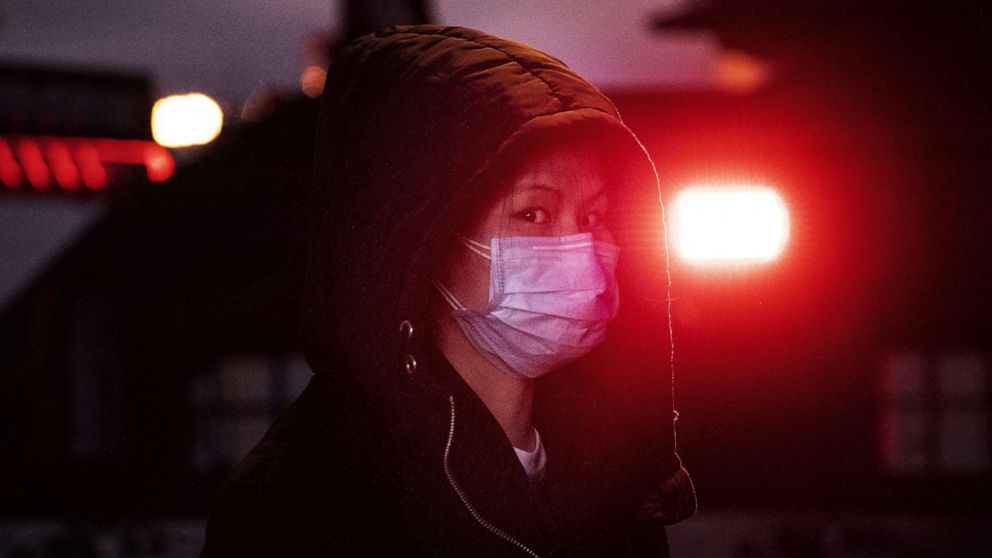
Containing the coronavirus – Can it be done?
As of January 21, America had its first confirmed case of coronavirus. The virus that presents with flu like symptoms and is slowly making its way around Asia has finally found a host on American soil. The news of this has health officials scurrying and the world on edge with concerns of another SARS-like epidemic on the way. "As it stands, nearly 440 cases of the new coronavirus have been reported in China, Thailand, Japan, South Korea, Taiwan and the United States, with the overwhelming majority in China. All cases reported internationally were exported from Wuhan. Nine deaths have been reported in Wuhan. What should I know about the cornonavirus case in the U.S.? The first case of coronavirus reported in the U.S. is in a patient in his 30s from Washington state, the CDC said Tuesday. Laboratory testing at the CDC in Atlanta confirmed the patient was infected with it. He's currently hospitalized, in good condition, health officials in Washington said. Although the patient had traveled to Wuhan, he said did not visit the market at the center of the outbreak." January 21 - ABC News As this story develops, there remains a lot of questions to be asked getting the right information and facts will be essential given this is a matter of public health and concern. How is the virus transmitted? Can we expect more cases to appear on U.S. soil? Is there a vaccine and are there any preventable actions people can take? And, can health authorities stop the spread of Coronavirus before it becomes an epidemic? If you are a journalist covering this topic – that’s where our experts can help. Dr. Jose Vazquez is an expert in the realm of infectious diseases. He studies and treats infectious diseases, including antibiotic-resistant superbugs and fungal infections. A leader in his field and a go-to expert for media regarding this topic, Dr. Vasquez is available to speak with media regarding Immunization Awareness Month. Click on his icon to arrange an interview.

By early afternoon Friday, the Centers for Disease Control and Prevention had confirmed a second case of the new coronavirus on American soil. With cases now being detected in Europe and across Asia, the world is watching and worrying about the potential spread of this dangerous virus. There are 63 cases being monitored in the U.S. that stretch across 22 states, including the first patient in Washington state and the new case in Illinois, said Dr. Nancy Messonnier, director of the National Center for Immunization and Respiratory Diseases. Officials said the new patient, a woman in her 60s, is doing well and is in stable condition. She remains isolated in a hospital as a precaution, U.S. health officials said on a conference call with reporters. The Illinois patient traveled to China in late December and began experiencing symptoms when she returned to the U.S. last week, officials said. She did not have symptoms while flying, they said. “She was not symptomatic when flying. And based on what we know now about this virus, our concern for transmission before symptoms develop is low, so that is reassuring,” Dr. Allison Arwady, Chicago’s public health commissioner, said on the call. January 24 – CNBC As this story progresses – there are a lot of questions journalists are asking. How is this virus spread? How worried do Americans need to be about the coronavirus? Are there warning signs or methods to prevent the spread? And how far away are we from a vaccination? If you are a journalist covering this developing issue – let our experts help. Dr. Jian Zhang has worked with the Chinese Centers for Disease Control and Prevention, and the World Health Organization prior to moving to the United States. He obtained a Doctorate in Public Health from the Arnold School of Public Health, University of South Carolina before he joined the faculty of Jiann-Ping Hsu College of Public Health at Georgia Southern University. He is available to speak with journalists regarding the coronavirus and its origins and its potential to spread across America – simply click on his icon to arrange an interview.
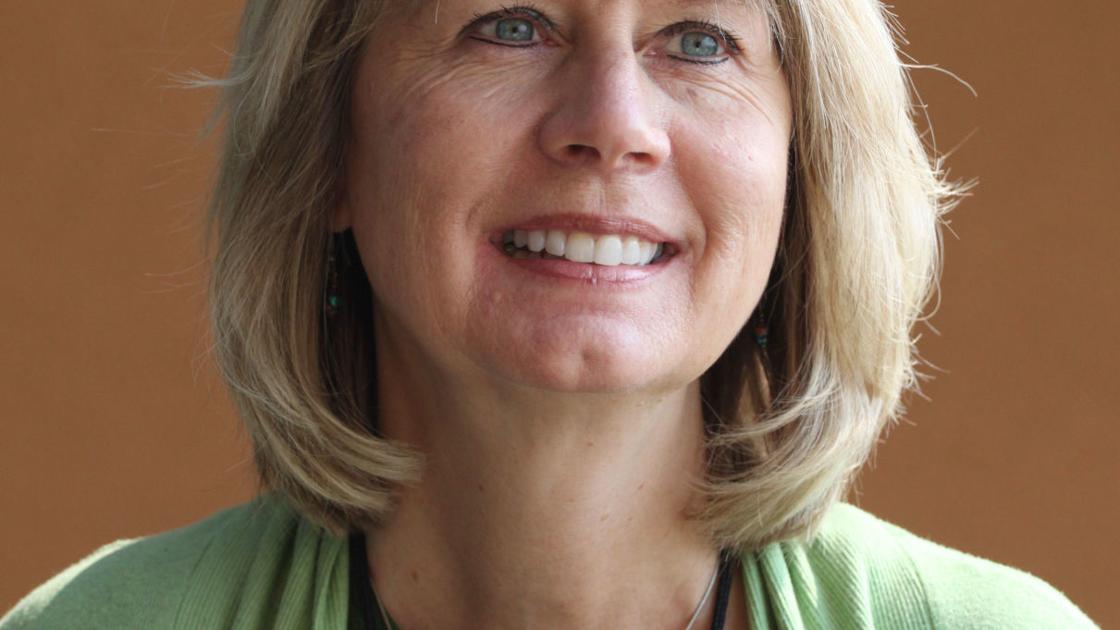
August is National Immunization Awareness Month – get the facts about vaccination
All month long, there will be stories, debates and conversations about vaccinations. Once common-place in life, vaccinations today face scrutiny. The anti-vax movement has taken its foothold on social media and regrettably causing some to question medical advice, expertise and the need for basic childhood immunizations out of fear and misinformation. Measles, which was considered eradicated a short time ago, has now made a resurgence across the country. Mumps are also on the comeback. It’s as baffling as it is concerning – and dangerous. There are a lot of questions to be asked this month: What study spawned the anti-vax movement, and has it been debunked? Are there dangers to being vaccinated? Do people understand the term “herd immunity”? And who is truly in danger at schools and in the community if people aren’t vaccinated? Are you a journalist covering this topic? That’s where our experts can help. Dr. Jose Vazquez is an expert in the realm of infectious diseases. He studies and treats infectious diseases, including antibiotic-resistant superbugs and fungal infections. A leader in his field and a go-to expert for media regarding this topic, Dr. Vasquez is available to speak with media regarding Immunization Awareness Month. Click on his icon to arrange an interview.
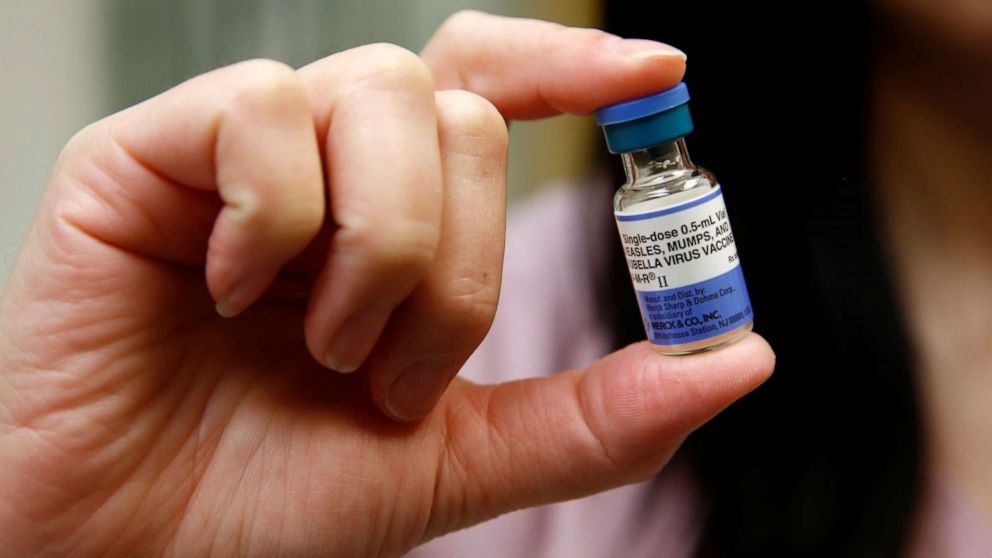
Measles is back…and our experts want people to leave the facts about vaccinations to the experts
Last week, America hit a record. Confirmed cases of measles eclipsed 700 cases. The disease that was once considered eradicated is now back and it has public health officials concerned. Dr. Todd Reinhart is the Dean of Sciences and Health Professions at Saint Mary’s University of Minnesota, and he has more than two decades of experience in infectious disease research. He’s a strong proponent of vaccinations and weighed in with his thoughts and perspective. “I’m not shocked,” says Reinhart. “I know there’s been a strong anti-vaccination movement and there’s a lot of misinformation out there.” He believes social media has been largely responsible for this movement to not vaccinate. The publication of the “Wakefield” paper, which suggested that the measles-mumps-rubella (MMR) vaccine might be linked to autism — even though retracted — got a lot of attention. However, that research that vaccinations cause autism has been debunked and even most recently there’s a study out of Denmark that covered 5,000,000 person years and there was no association with immunization and developing autism. Reinhart wants the public to look at the bigger picture and consequences. “It’s important to protect that child but also the broader society. Vaccines have been the strongest public health success story over the last few centuries. Measles is one of the most highly contagious viruses that we know. The odds of your getting it, if you’re exposed to it and you haven’t been immunized, is 90 percent. Part of the concern is for infants who aren’t immunized, the elderly because their immune systems are weaker, and those who are immunocompromised.” But there is also the matter of rights to be considered and that is playing a big part in all of this. “The problem is that individuals’ rights intersect with medicine, public health practice, and collective rights. If my infant, who couldn’t be immunized, contracts it through a carrier who could have been immunized, who has the higher ground because of rights? The problem is that even with clear data and clear information, people have been allowed the right, for the most part, to make the decisions they want,” Reinhart reiterates. If you are looking for answers and facts when it comes to vaccinations – it’s best to visit credible sources like the Centers for Disease Control and Prevention or local public health websites. If you need to speak with an expert about this topic for your news coverage – let us help. Dr. Todd Reinhart is Dean of Sciences and Health Professions, Professor, Biology and Health Professions at Saint Mary’s University of Minnesota. He has a degree in cancer biology from Harvard University’s School of Public Health and is an expert in the areas of infectious diseases. Simply click on his icon to arrange an interview.

Adults need vaccines too? You bet. Find out why.
Back to school for kids also means time to get those immunizations up to date. But did you know that most adults, age 50 and older, may also need a few important vaccines as well? August is National Immunization Awareness Month, and what better time to check with your physician to see what vaccines may be appropriate for your age. “One of the most important immunizations for adults to have each year is the Influenza vaccine,” said Dr. Jose Vazquez, Chief of Infectious Diseases at Augusta University and AU Medical Center. “In elderly or older adults, in particular, the flu can turn deadly very quickly.” There was a was a high severity of the H3N2 influenza strain with record-breaking levels of influenza-like illness and hospitalization rates, according to the Centers for Disease Control and Prevention. “We hope to save more lives through appropriate and timely flu vaccinations,” Vazquez said. Furthermore, vaccines are necessary throughout our lives. Adults should keep their vaccinations up to date because immunity from childhood vaccines may wear off over the years. Other factors that can influence the need for different vaccines in adults include the individual’s underlying health conditions, career, lifestyle, and travel habits. Other important adult vaccines include Tdap (tetanus, diphtheria, and pertussis), pneumococcal (pneumonia prevention), and shingles. “Immunizations have proven to be very safe, and they are widely available. I recommend asking your primary care doctor about what vaccines you need to promote better health and prevent communicable diseases,” Vazquez said. To schedule an interview with Dr. Jose Vazquez, click on his expert profile. Source:




